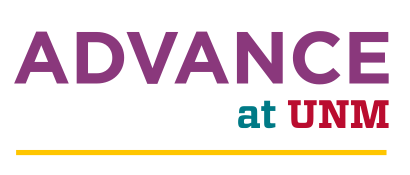STEM Shoutout: Dr. Sonia Gipson Rankin
Law professor looks at protections if AI software for correctional system is hacked
University of New Mexico Law Professor Sonia Gipson Rankin combines her computer science and law training to research the protections in place if software used in the legal system is potentially hacked.
Her work has recently been featured on a local news site, where she explains the use of these softwares in a legal setting. She earned her computer science degree from Morgan State University and her law degree from the University of Illinois College of Law.
“With my law degree, I am able to connect an understanding about the legal system and about cross-connecting proprietary software, copyright issues, trademark issues and notions of fairness in the criminal justice system,” Gipson Rankin said.
She focuses her research on two pieces of software. One is Equivant (once called Correctional Offender Management Profiling for Alternative Sanctions or COMPAS), a proprietary software, and the Arnold Tool, which was set up by a non-profit foundation. Both of these softwares give recommendations to judges assessing the likelihood of recidivism by a defendant. In New Mexico, the Arnold Tool is used in the Second Judicial District Court and in the corrections system.
“What I want to focus on is what are the protections in place if that software has been hacked,” Gipson Rankin said. “And how do we know? And what is the outcome of it? The unfortunate answer is that we don’t know. We don’t know if that software has been hacked and we won’t know what it looks like because the code writes itself.”
She said most artificial intelligence software does not have the common sense and cognitive ability of an 18-month-year-old child, so she questions how much this software should be trusted when determining whether a person is considered a threat to society or not.
“While we are excited that the AI can beat a person in chess, that doesn’t mean that it can understand the differences we expect at least an 18-month old to be able to understand,” Gipson Rankin said.
Gipson Rankin advises that these softwares be monitored, not only based on proposed recommendations but for instances of hacking.
“I want a lot more attention paid to any potential instances of ransomware or hacking or nefarious behavior that can change the outcomes,” she said. “And these are the things we won’t be able to fix or address for a generation until we know who is impacted and why.”
Gipson Rankin conducts her research with the Interdisciplinary Working Group for Algorithmic Justice made up of ten scholars from across UNM and the Santa Fe Institute.
“I am so fortunate that I have been part of for the last year there’s a group of UNM professors from the law school, political science, computer science and the Santa Fe institute that are working together on a number of larger issues.”
The group works to discuss issues related to algorithmic justice with their most recent work related to highlighting how discrimination can happen within regulations that Housing and Urban Development had planned to enact. Forbes magazine recognized the work done by the group in a November 2019 article.
“I’m really proud of us here in New Mexico for the work that is happening and its potential impact,” Gipson Rankin said. “And being a part of a research university and the law school that gives me a space to research these kinds of ideas, which is really fantastic.”

